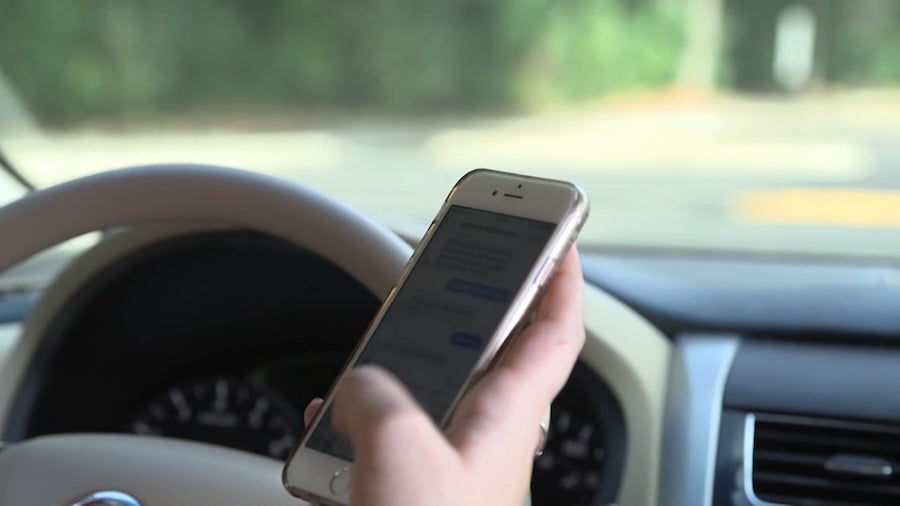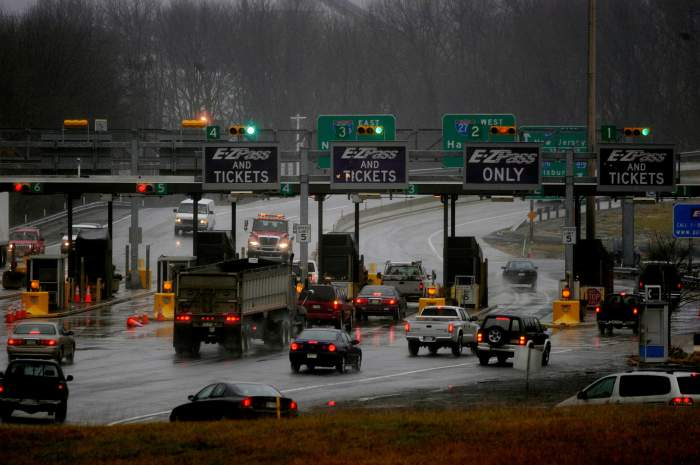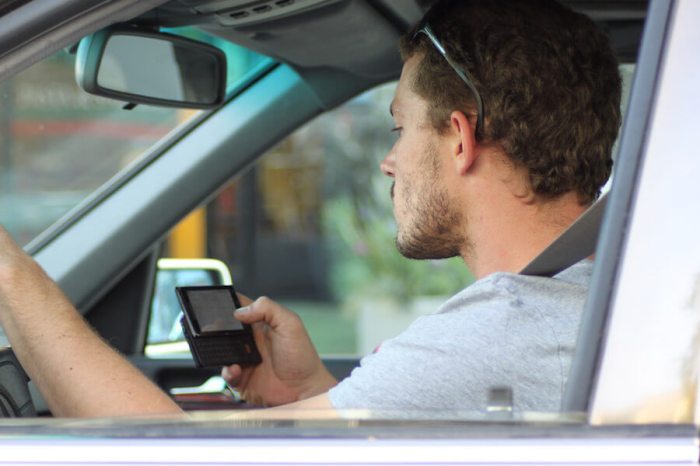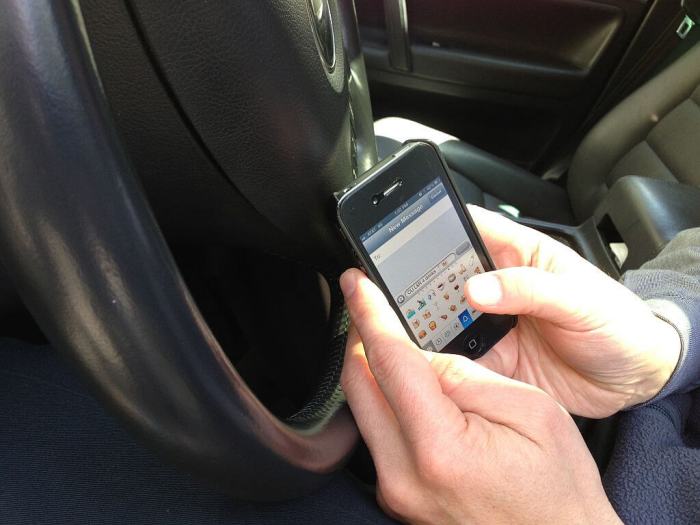Massachusetts is poised Thursday to take one step closer to becoming the 15th state to ban drivers from using handheld cellphones while behind the wheel.
The Senate plans to consider legislation that calls for a major expansion of the texting-while-driving ban established in 2010.
The bill, S 2092, would bar drivers from using handheld devices in non-emergency situations and start fines for violations at $100.
Fourteen states have hands-free driving laws to cut down on distracted driving, which was involved in nearly 10 percent of all traffic fatalities in 2015.
“In 2015, distracted driving was reported in crashes that killed 3,459 people. That’s almost 10 percent of all fatalities,” said Kara Macek, a spokeswoman for the nonprofit Governors Highway Safety Association. “We suspect that it could be worse than the reported data.”
The fourteen states with handheld device bans include California and Illinois, and more closer to home Connecticut, New Jersey, New York and Vermont.
The legislation before the Senate bans drivers from touching or holding a mobile device in either hand, with the exception of a “single tap or swipe to activate, deactivate or initiate hands-free mode.” Motor vehicle operators would be prohibited from using a device to access the internet to compose, send or read electronic messages, access social media, use any camera functions, make video calls, review or input information on a device or manually input information into a GPS or other navigation device. Drivers may, however, perform a single tap or swipe to activate a GPS voice command feature. Any driver holding a mobile electronic device “in the immediate proximity” of their head would be considered in violation of the proposed law.
There are 30 amendments pending to the bill.
Similar bills cleared the Senate last session and advanced in the House before dying in that branch.
Macek said the ban would make it easier for officers to enforce the texting-and-driving law that already exists in Massachusetts.
“Texting laws, it’s possible to enforce them but it’s challenging, which is why we encourage states to go one step further and do the hands-free legislation. All a law enforcement officer needs to do is visibly see someone manipulating their phone with their hand,” Macek said. “Right now, you could be doing a lot of different things on your phone that could technically be considered legal like apps and all sorts of different things.”
In New Hampshire, police attribute a steep decline in traffic fatalities to the hands-free law designed to keep drivers hands on their steering wheels.
New Hampshire State Police Mjr. Matt Shapiro told New Hampshire Public Radio there were two fatal crashes related to distracted driving last year, down from 16 in 2014 before the law was passed. Shapiro said many drivers have voluntarily complied with the law, calling it the start of a culture shift.
Vermont’s hands-free law has not fared as well. Driving analytics company Zendrive studied 3 million anonymous drivers from across the country for three months and ranked Vermont the worst state for distracted driving in a report published in April. Massachusetts ranked eight spots ahead of Vermont at 42.
Nationwide, drivers use their phones during 88 percent of trips, the study found.
Macek likened handheld device bans to speed limits and drunken driving. Even though drivers do not always obey the rules, it still makes sense to have them, she said.
“I think we need a culture change, a culture shift to get people to understand it is not acceptable and not safe,” Macek said. “It’s really like an addiction so I’m not quite sure how we’re going to accomplish that, but that doesn’t mean we shouldn’t try.”
Macek said she envisions a push in public education and traffic enforcement similar to the efforts to create a “broad shift in attitude” around drunken driving some 30 or 40 years ago.
There are only three states in the country that do not have any sort of texting-while-driving or hands-free law: Arizona, Missouri and Montana, Macek said.


















